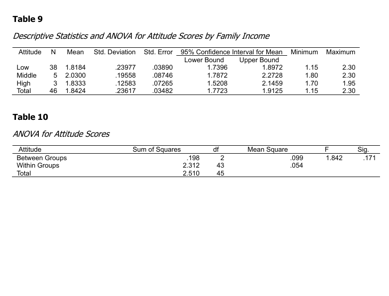ROBOTICS ACTIVITIES: Impact On Students’ Interest and Attitude in Science Learning
DOI:
https://doi.org/10.69478/BEST2025v1n1a021Keywords:
Robotics education, Science learning, Student attitude, STEM, Constructivism, Arduino, Educational equityAbstract
This quasi-experimental study examined the impact of robotics activities on students’ interest and attitudes in science learning among Grade 10 Science, Technology, and Engineering (STE) students and third-year Bachelor of Secondary Education (BSED) Science majors at the University of Antique. Rooted in constructivist theory, the study utilized Arduino-based robotics workshops integrated into science lessons. Pretest and posttest surveys assessed shifts in students’ interest and attitude. Quantitative data revealed statistically significant improvements in students' post-intervention scores, indicating enhanced interest and positive disposition toward science learning. Notably, there were no significant differences in attitude gains across sex or income levels highlighting the inclusive and equitable nature of robotics interventions. Middle-income students exhibited the highest attitude gains (M = 2.03), suggesting robotics may mitigate socioeconomic motivational gaps. While Grade 10 students recorded slightly higher attitude improvements than BSED majors, the difference was not statistically significant. The results affirm Papert’s (1980) constructionist learning theory and support prior research indicating the motivational benefits of educational robotics. The findings suggest that robotics-integrated science education enhances engagement, promotes equity, and prepares future educators and students for STEM-related academic and career pathways. It is recommended that robotics be integrated systematically into science curricula and teacher training programs to maximize pedagogical benefits and support inclusive STEM education.
References
M. O. Faruque, S. N. Chowdhury, M. G. Rabbani, N. A. Khan, “Technology Adoption and Digital Transformation in Small Businesses: Trends, Challenges, and Opportunities,” International Journal for Multidisciplinary Research, vol. 6, no. 5, October 2024, https://doi.org/10.36948/ijfmr.2024.v06i05.29207.
DepEd, “K-12 Curriculum Guide in Science,” August 2016, https://www.deped.gov.ph/wp-content/uploads/2019/01/Science-CG_with-tagged-sci-equipment_revised.pdf.
F. T. De La Peña, J. T. Biyo, "Science for Human Capital," Department of Science and Technology, 2021, https://www.dost.gov.ph/phocadownload/Downloads/Resources/Publications/2021/Science%20for%20Human%20Capital.pdf.
S. Papert, “Mindstorms: Children, Computers, and Powerful Ideas,” Basic Books Inc., NY, USA, January 1980, https://dl.acm.org/doi/pdf/10.5555/1095592.
D. Alimisis, “Educational Robotics: Open Questions and New Challenges,” Themes in Science & Technology Education, vol. 6, no. 1, January 2013, pp. 63-71, https://files.eric.ed.gov/fulltext/EJ1130924.pdf.
G. Nugent, B. Barker, N. Grandgenett, G. Welch, “Robotics Camps, Clubs, and Competitions: Results from a US Robotics Project,” Robotics and Autonomous Systems, vol. 75, part B, January 2016, pp. 686-691, https://doi.org/10.1016/j.robot.2015.07.011.
Y. H. Ching, Y. C. Hsu, “Educational Robotics for Developing Computational Thinking in Young Learners: A Systematic Review,” TechTrends, vol. 68, April 2023, pp. 423-434, https://doi.org/10.1007/s11528-023-00841-1.
O. Coşkunserçe, “Implementing Teacher-Centered Robotics Activities in Science Lessons: The Effect on Motivation, Satisfaction and Science Skills,” Journal of Pedagogical Research, vol. 5, no. 1, 2021, http://dx.doi.org/10.33902/JPR.2021067231.
G. Saw, C. N. Chang, H. Y. Chan, “Cross-Sectional and Longitudinal Disparities in STEM Career Aspirations at the Intersection of Gender, Race/Ethnicity, and Socioeconomic Status,” Educational Researcher, vol. 47, no. 8, July 2018, pp. 525-531, https://doi.org/10.3102/0013189X18787818.
S. Anwar, N. A. Bascou, M. Menekse, A. Kardgar,, “A Systematic Review of Studies on Educational Robotics,” Journal of Pre-College Engineering Education Research, vol. 9, no. 2, July 2019, https://doi.org/10.7771/2157-9288.1223.
A. Master, S. Cheryan, A. Moscatelli, A. N. Meltzof, “Programming Experience Promotes Higher STEM Motivation Among First-grade Girls,” Journal of Experimental Child Psychology, vol. 160, August 2017, pp. 92-106, https://doi.org/10.1016/j.jecp.2017.03.013.

Downloads
Published
Issue
Section
Categories
License
Copyright (c) 2025 Shella D. Delgado, Monalie C. Saylo, Van Helen S. Cuaderes (Author)

This work is licensed under a Creative Commons Attribution-NonCommercial 4.0 International License.



